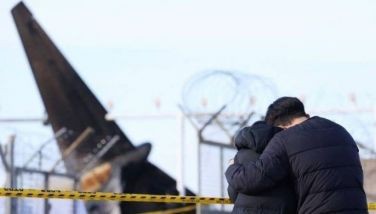Israeli ministers approve new restrictions on dovish groups
JERUSALEM — Israeli Cabinet ministers on yesterday gave a preliminary approval for a bill that imposes restrictions on nonprofit groups that receive foreign funding, drawing accusations it is meant to crack down on government critics.
The bill, proposed by Justice Minister Ayelet Shaked and approved by a committee of ministers, would affect organizations that receive more than half their funding from a foreign government.
Critics said the legislation is meant to stifle dovish organizations critical of Prime Minister Benjamin Netanyahu's government policies toward the Palestinians, since such non-government groups tend to rely heavily on donations from European countries.
In contrast, pro-government and nationalistic nonprofit groups tend to rely on wealthy private donors, who are exempt from the measures under the proposed bill. The legislature is expected to approve the bill as early as this week.
Opposition leader Isaac Herzog quickly blasted the bill as a "muzzling law" that would bring about "thought police."
The bill requires affected organizations to declare their sources of funding on every report and in parliamentary discussions. Their activists also will be required to wear special tags when working in Israel's parliament.
Proponents of the bill say that foreign governments have standard diplomatic channels at their disposal through which they can push their agendas, and that funding nonprofit groups amounts to meddling in Israeli affairs.
"I expect the European Union to respect the democratic decisions of Israel," said Shaked, the justice minister.
Dovish nonprofit groups said they are being unfairly singled out and noted that hard-line groups that support Jewish settlers in the West Bank and east Jerusalem are exempt from the measures.
"If you mark us in a way you do not mark any other group, our voice becomes less legitimate," said Avihai Stollar, a spokesman for Breaking the Silence, a group of former Israeli combat soldiers who criticize Israeli policies in the occupied West Bank.
"Instead of dealing with the violence of the radical right, they are putting up a smoke screen by picking on human rights groups in Israel," he added.
- Latest
- Trending





























